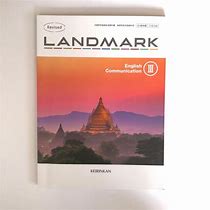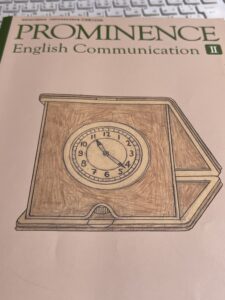奈良学園前と西宮夙川にある英語専門塾です。試験前の生徒の為にオリジナルのプリントを作って対応しております。その中から少しずつアップしていきます。
高校生が使う ランドマーク3 Lesson 1です。。
自習勉強にお役立てください。
p.20 1
It’s 1:45 a.m. Thomas Murphy ❶( ) ( ) ( ) all night ❷( ) ( ) an important exam at 2:00 this afternoon. To stay awake and focused, he has had two cups of coffee in the last three hours and is now drinking a popular energy drink. Many students like Murphy, ❸( ) ( ) ( ) sports players, airline pilots, and long-distance travelers, ❹( ) their energy ( ) one of our oldest ❺( ); caffeine.
午前1時45分、トーマスマーフィは今日の午後2時の重要な試験の為❷の準備しながら、❶一晩中起きている。目が覚めて、集中する為に、彼はこの3時間で2杯のコーヒーを飲み、今は人気のエナジードリンクを飲んでいる。スポーツ選手、飛行機のパイロット、そして長距離運転手❸と同様に、マーフィの様な多くの学生は、彼らの❹活力を最も古い❺興奮剤に頼っている。それはカフェインである。
2
Caffeine ranks as the world’s most popular ❶( ) drug. This is partly ❷( ) ( ) its power to decrease physical tiredness and increase alertness. It is found ❸( ) ( ) in energy drinks, coffee, and tea, ❸( ) ( ) in diet pills, pain relievers, and chocolate bars. Many societies around the world have been created rituals around the use of caffeine: afternoon tea in the UK, the café culture of France, and the tea ceremony in Japan.
カフェインは世界で最も人気のある❶向精神薬として位置している。これは身体的な疲労を一部的に軽減し、用心深さを増加❷させるためによる。カフェインはエナジードリンク、コーヒー、お茶❸だけではなく、ダイエットの錠剤、鎮痛剤、チョコレートバー❸でも見つかっている。イギリスではアフタヌーンティー、フランスではカフェ文化、日本ではお茶会といった世界中の多くの社会ではすでにカフェインを使った儀式が作られている。
p.21 3
Caffeine is found in many of the foods and drinks we consume, but is it really good for us? Charles Czeisler, a scientist who studies sleep, believes that caffeine ❶( ) us ( ) ( ) sleep. “Without enough sleep (typically eight hours), the human body will not work ❷( ) ( ) ( ) physically, mentally, or emotionally. Too often we consume caffeine to stay awake, which later ❸( ) ( ) ( ) ( ) us ( ) get the rest we need.
カフェインは私たちの消費する多くの食べ物や飲み物で見つかっていますが、カフェインは本当に私たちにとって良いものなのでしょうか。睡眠を研究している科学者、チャールズ・ツァイスラーはカフェインは❶私たちの眠りを失わせることを引き起こしていると信じています。“十分な睡眠無しでは(一般的には8時間)、人間の身体は身体的に、精神的に、感情的に❷一番良い状態にはならないだろう。起き続けるためにカフェインを頻繁に消費することで、❸後で私たちが必要な休息を取ることが不可能になります。”
4
Health risks have also been ❶( ) ( ) caffeine consumption. ❷( ) the years, studies ❸have ( ) higher rates of certain type of cancer and bone disease ( ) caffeine consumption. ❹( ) ( ), however, there has been no proof that caffeine actually causes these diseases.
健康上の危険性もまたカフェイン消費量❶と関係があります。❷長年にわたり、研究者はカフェインの消費は❸あるタイプのがんや骨の病気に高い確率でおこると考えていました。
しかしながら、❹現在までカフェインが実際それらの病気を引き起こすという証拠がありません。
p.22 5
❶( ) ( ) ( ) scientists, ❷( ) Roland Griffiths, believe that regular caffeine use causes physical dependence. Heavy caffeine users exhibit other negative effects. For example, their moods fluctuate from high to low and they get severe headaches. Moreover they feel tired or sad when they can’t have a cup of teat or coffee, or a bottle of soft drink or energy drink. To stop or reduce these feelings, users must consume more caffeine – ❸ a characteristic of drug ( ).
ローランドグリフィス❷を含む、❶多くの科学者が定期的なカフェインの使用は身体的依存を引き起こすと信じています。重度のカフェイン使用者は他の良くない影響が見られます。例えば、彼らの気分は下がり、深刻な頭痛も起こります。その上、お茶やコーヒー、ソフトドリンクやエナジードリンクを飲むことができないと疲れや悲しみを感じます。それらの気分を止めたり減らすために使用者はよりカフェインを消費しなければならなく、それは❸薬物中毒の特徴です。
6
❶( ) these concerns, a common opinion in the scientific community is that caffeine is not dangerous when drunk sensibly: having one or two small cups of coffee (about 250 milligrams of caffeine) ❷( ) day, for example. ❸( ), a lot of recent research ❹( ) long-held negative beliefs about caffeine consumption, and suggests that it may, in fact, have health benefits. For instance, studies have shown that caffeine can ❺( ) ( ) muscle pain. Research has also shown that some drinks ❻( ) caffeine have disease-fighting chemicals that can help the body fight a number of illnesses, ❼( ) certain types of cancer.
それらの心配❶にもかかわらず、科学社会での一般的な意見はカフェインは、例えば、❷一日につき一杯から二杯(約250ミリグラムのカフェイン)を賢明に飲んだら、危険ではないというものです。❸さらに、多くの最近の研究はカフェインの消費について長く続いた否定的な考えは❹否定していて、実際は健康に利益をもたらす可能性があることを示しています。例えば、研究者はカフェインが筋肉痛を❺和らげること助けると示しています。
研究ではまたカフェイン❻を含むいくつかの飲み物はがんのある種類❼を含む、いくつかの病気と身体が戦う助けをすることができる化学物質を含んでいることが発見されています。
7
❶( ) ( ), as a type of mental stimulant, caffeine increases alertness, memory, and reaction speed. Because it fights tiredness, it improves performance ❷( ) ( ) ( ) driving, flying, and solving simple math problems. ❸( ) ( ) ( ) ( ) caffeine can increase blood pressure, ( ) the effect is usually temporary and therefore ❹( ) ( ) ( ) cause heart trouble, especially if caffeine is consumed in sensible amounts.
❶加えて、精神興奮剤の一種として、カフェインは警戒力、記憶力、反応速度を上げます。
カフェインは疲れと闘うので、運転やフライトそしてシンプルな数学の問題を解く❷といった仕事のパフォーマンスを向上させます。
❸カフェインは血圧を上げることができるのは本当ですが、その影響は大抵一時的なので、特にカフェインが賢明な量で消費されているなら、心臓のトラブルを起こす❹傾向はありません。
8
Caffeine’s effects are real, but most often mild. ❶( ) ( ) ( ) many of the most popular drinks on earth contain caffeine.
カフェインの効果は本当ですが、ほとんど軽いものです。❶そういうわけで、地球上の多くの人気な飲み物はカフェインを含んでいます。



